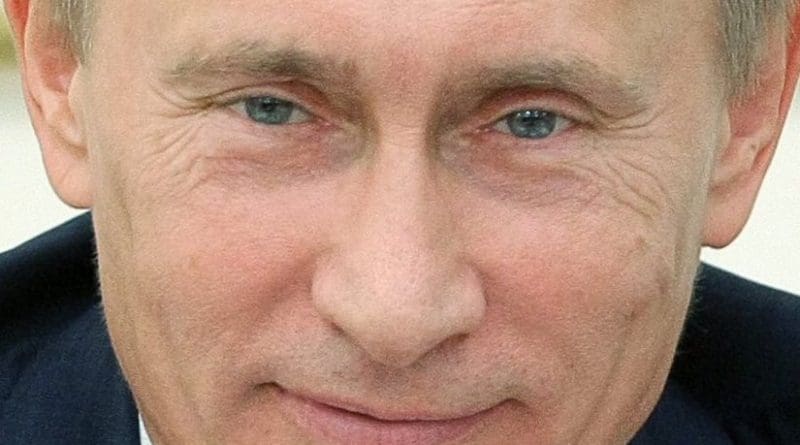Putin’s Old Moldova Map Alarms Romania
By Ana Maria Touma
Politicians in Bucharest have reacted with dismay and in some cases with anger after Russian President Vladimir Putin on Tuesday presented his Moldovan counterpart Igor Dodon with an ancient map of Moldova that includes parts of modern Romania.
The map presented in the Kremlin includes today’s Republic of Moldova, the Romanian province of the same name, northern Bukovina – once part of Romania but now in Ukraine – and a part of the Dobrogea region, also in Romania.
Putin did not say much about the unusual gift, but at a press conference held in Moscow on Tuesday after his meeting with Putin, Dodon proudly presented the map drawn in 1790 by Italian cartographer Bartolomeo Borghi during the Russian-Ottoman war.
“Half of today’s Romania is actually Moldova,” the President noted, undiplomatically.
Modon also said he regretted the fact that in 1812, when the Russian Empire annexed Bessarabia, as it was then called, Russia stopped at Prut River and did not grab everything all the way to the Carpathians.
Had they not done that “Moldova would be whole”, Dodon remarked.
He added, however, that Moscow has no desire to see an „iron fence” go up on the border with Romania and also said humanitarian projects financed by Romania in Moldova should be allowed to continue their work.
Dodon went on to say that his third official visit as Moldova’s new head of state would be to Romania or Ukraine, after Moscow and then Brussels.
“You know, you cannot choose your neighbours. Moldova and Romania have many good projects together and I intend to be a friend of Romania,” the Moldovan President added.
Romania’s Foreign Ministry on Wednesday made no mention of the Greater Moldova map but did say it saw Dodon’s statements as out of place and as inconsistent with today’s political needs.
“Continuing the modernization and reform process as well as fulfilling the aspirations of all citizens in Moldova requires more responsible actions and attitudes,” the ministry said.
However, some politicians and analysts in Bucharest were less placid in their reactions.
The right-wing Popular Movement Party MP and former presidential adviser Eugen Tomac, who was born in Moldova, accused Moscow of an unprecedented attack on Romania.
“I’ve warned many times on the Russian danger in Romania. If, until now, the Kremlin scouted the field through veiled messages, today, through his servant in Chisinau, [i.e. Modon] Putin sent an explicit message that he doesn’t care about Romania’s integrity,” he said. “It’s a clear, direct and dangerous threat,” Tomac added.
Political commentator Cristian Unteanu also said that Putin’s gift of the map was obviously no simple gesture of courtesy but a complex political message that should be looked at with care.
“At the moment, this gift speaks to the enthusiastic ear of Moldova’s President,” he said.
“But tomorrow, the same type of map can be pulled out to demonstrate and fuel conflicts in Western Balkans, in the Baltic states or, why not, between Hungary and neighbouring countries, Poland, Slovenia, Bulgaria, Macedonia or Greece,” he said.
Openly pro-Russian in his sympathies, Dodon has often shown he holds a grudge against EU-member Romania, which ruled Moldova between the two world wars.
In January, he stripped former Romanian president Traian Basescu of his Moldovan citizenship, accusing him of promoting Moldova’s re-union with Romania.
Dodon’s visit to Moscow, his first official visit as President since his election, caused waves to be sent in several directions.
Dodon told a press conference with Putin that he was ready to terminate Moldova’s association agreement with the European Union as soon as his Socialist Party won a majority in parliament.
His statement drew criticism from Moldova’s Prime Minister, Pavel Filip, who said he was in an awkward position, explaining Dodon’s statements to European leaders.
– See more at: http://www.balkaninsight.com/en/article/putin-s-old-moldova-map-alarms-romania-01-18-2017#sthash.twllDWm5.dpuf

